
THE VOICE OF INTERNATIONAL LITHUANIA
|
VilNews has its own Google archive! Type a word in the above search box to find any article.
You can also follow us on Facebook. We have two different pages. Click to open and join.
|
Lithuania in the world
- Posted by - (0) Comment

Lost Birds by Birute Putrius
Published by Birchwood Press
Lost Birds tells the stories of the generation of Lithuanians who, like lost birds, flee the advancing Soviet Army at the end of World War II. They land in displaced persons camps in Germany and later are given refuge in America.
It’s the story of their children, Irene Matas and her friends who struggle to become American and yet not lose their identity in their tight-knit Lithuanian Communities. But as they grow and spread their wings, they begin to rebel in their search for a wider world.
These stories are in turn tragic, funny, magical and elegiac. In the last story, when Lithuania regains its freedom, a group returns to visit relatives, only to find the country sadly changed by the many years of Soviet occupation. And Irene finds something surprising there.
The paperback book is $16.00, while the Kindle and Nook version is $9.99. Both can be found on Amazon and Barnes and Noble online, and Booktopia in Australia.
- Bookmark :
- Digg
- del.icio.us
- Stumbleupon
- Redit it
- Posted by - (6) Comment
and minds for the sake
of a new Lithuania
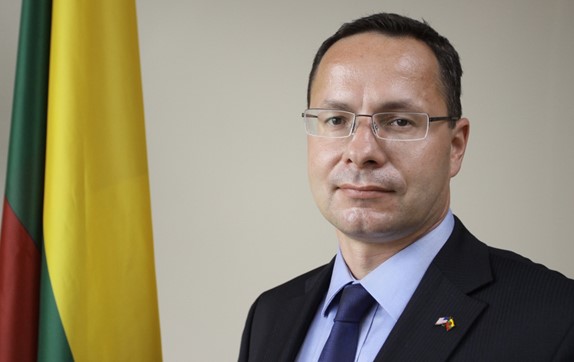
By Žygimantas Pavilionis,
Former Lithuanian Ambassador to the United States of America
I am deeply grateful for the exceptional honor and privilege to serve my country in Washington D.C. for five consecutive years (2010-2015). I guess it was the peak of my diplomatic career that inspired me to take my final step towards politics (I am now running for office in 2016 parliamentary elections), but most importantly, it was the period when I met and learned so much from my fellow Lithuanian Americans.
Why was this encounter so important for me personally?
First of all, I had an immediate connection to the strong and vibrant civil society of interwar independent Lithuania, preserved in Chicago and other great U.S. cities, strengthened by the great American spirit. The sense of human dignity, solidarity, Lithuanian heritage, our common mission was tremendous, inspiring, and breathtaking.
Read more...- Bookmark :
- Digg
- del.icio.us
- Stumbleupon
- Redit it
- Posted by - (11) Comment
Have you heard about the
South African “Pencil Test”?

By Karina Simonson
If you are not South African, then, probably, you haven’t. It is a test performed in South Africa during the apartheid regime and was used, together with the other ways, to determine racial identity, distinguishing whites from coloureds and blacks. That repressive test was very close to Nazi implemented ways to separate Jews from Aryans. Could you now imagine a Lithuanian mother, performing it on her own child?
But that is exactly what happened to me when I came back from South Africa. I will tell you how.
Read more...- Bookmark :
- Digg
- del.icio.us
- Stumbleupon
- Redit it
- Posted by - (0) Comment
From Chicago to Paris – then by
car through Europe to Lithuania!

AMERICAN-LTUHUANIAN DIANA PAULIŪTĖ CLARISSE,
WITH HUSBAND AND SON, ON THEIR WAY THROUGH EUROPE
By Diana Pauliūtė Clarisse
Phd in Chemistry, Chicago USA
For about an hour now the two GPSs have been cooing two different directions. Our Tom Tom brought from home was telling us to ”turn left when possible”, while the GPS mounted in the rental car is having us move ever Northeast. My husband is saying we should listen to our Tom Tom. That would have been a good idea I think as we come to an abrupt standstill. The cars in front of us line up in a row looking like it goes on forever. Some of the drivers are standing next to their cars chatting away with other drivers as though they had been there all day. There must have been an accident, I say. The time is late in the afternoon, we have been perhaps 20 hrs on the road.
Read more...- Bookmark :
- Digg
- del.icio.us
- Stumbleupon
- Redit it
- Posted by - (2) Comment
EXPLORING EUROPE
Tour guide, writer and photographer: Aage Myhre, Editor-in-Chief
aage.myhre@VilNews.com
Click the READ buttons or the article headlines below to access the articles:
- Bookmark :
- Digg
- del.icio.us
- Stumbleupon
- Redit it
- Posted by - (1) Comment
International Lithuania
meets in Old Town!

Last Friday the summer season opened here in Vilnius Old Town, for many pleasant encounters between Lithuanians and Lithuanian-related people from all over the world! Amatininku Užeiga (The Craftsmen's Tavern) on the corner of Rotušės aikštė (Town Hall Square) and Stiklių street was the place where we met – representatives of the World Lithuanian Community, Vilnius International Club and VilNews – this warm, velvet soft early summer evening. Amazing night! Wonderful people!














- Bookmark :
- Digg
- del.icio.us
- Stumbleupon
- Redit it
- Posted by - (0) Comment

Lithuanians
in the World
VilNews will from time to time present Lithuanians who have left the home country and made some kind of career abroad. We are this time not so much looking for celebrity articles, more for some unusual life stories describing Lithuanians who have settled somewhere in the world. Send us your story!- Bookmark :
- Digg
- del.icio.us
- Stumbleupon
- Redit it
UK educated Lithuanians are now returning home!
- Posted by - (0) Comment
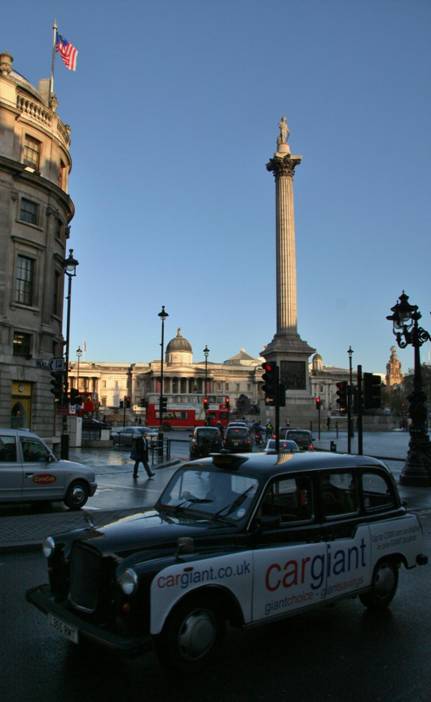
Lithuanians are now returning home from the UK. In cabs?
Photo: Aage Myhre.
A recent guadian.co.uk article on Lithuanians in the UK discusses how well Lithuanians integrated in the British society and made Britain their home. At the same time, the Guardian outlines a new trend of UK-educated young professionals; many are now moving back to Lithuania!
It also mentions Lithuanian government’s initiatives to encourage Lithuanians living abroad to look for opportunities back home, such as the new Junior Professionals Programme „Kurk Lietuvai“ (Eng. “Create for Lithuania”) that was initiated by Invest Lithuania.
Programme “Kurk Lietuvai” attracted a lot of attention among young Lithuanian professionals abroad and was noted by the guardian.co.uk as a fine effort to encourage the young professionals to return home. The pioneering project was successfully launched in September last year, offering one-year internships in the heart of government ministries and public institutions. “The project is aimed exclusively at young Lithuanians with degrees from the best foreign universities and will undoubtedly woo some of the brightest back”, - writes the guardian.co.uk.
Lithuania promotes its highly qualified labour pool as one of the key factors attracting foreign investment to the country. Multinational companies consistently identify the high quality of staff as the most positive aspect of their experience in Lithuania.
Read the full article here
- Bookmark :
- Digg
- del.icio.us
- Stumbleupon
- Redit it
- Posted by - (1) Comment
|
|
Great Britain is green & glorious |

Laugharne Castle in Wales.
Photo: www.landscapes-online.com
|
The United Kingdom The United Kingdom includes the island of Great Britain, the north-eastern part of the island of Ireland and many smaller islands. Northern Ireland is the only part of the UK that shares a land border with another sovereign state—the Republic of Ireland. Apart from this land border the UK is surrounded by the Atlantic Ocean, the North Sea, the English Channel and the Irish Sea. The United Kingdom is a unitary state governed under a constitutional monarchy and a parliamentary system, with its seat of government in the capital city of London. It is a country in its own right and consists of four countries: England, Northern Ireland, Scotland and Wales. There are three devolved national administrations, each with varying powers, situated in Belfast, Cardiff and Edinburgh; the capitals of Northern Ireland, Wales and Scotland respectively. Associated with the UK, but not constitutionally part of it, are three Crown Dependencies. The United Kingdom has fourteen overseas territories. These are remnants of the British Empire which, at its height in 1922, encompassed almost a quarter of the world's land surface and was the largest empire in history. British influence can still be observed in the language, culture and legal systems of many of its former territories. The UK is a developed country and has the world's seventh-largest economy by nominal GDP and seventh-largest economy by purchasing power parity. It was the world's first industrialised country and the world's foremost power during the 19th and early 20th centuries. Queen Elizabeth II is the head of state of the UK as well as of fifteen other independent Commonwealth countries. The monarch itself is symbolic rather than political, and only has "the right to be consulted, the right to encourage, and the right to warn". The United Kingdom has an uncodified constitution, as do only three other countries in the world. The Constitution of the United Kingdom thus consists mostly of a collection of disparate written sources, including statutes, judge-made case law and international treaties, together with constitutional conventions. As there is no technical difference between ordinary statutes and "constitutional law" the UK Parliament can perform "constitutional reform" simply by passing Acts of Parliament and thus has the political power to change or abolish almost any written or unwritten element of the constitution. However, no Parliament can pass laws that future Parliaments cannot change. |
|
|
|
London
|
|
It is November. I'm on my way to London from Dover, in my own car. A bit weird to drive on the left side of the road. But London is fantastic, one of my absolute favourite cities in the world. Especially now that Christmas is approaching. This is the city to visit for Christmas shopping and much, much more. The special light. Lavishly decorated stores on Oxford Street. Good smell from every street corner. A pint at The White Lion in Covent Garden... |

Buckingham Palace, the Queen’s home.

River Thames.
Photos: Aage Myhre
London is made up of buildings from many different architectural styles. Most were built after the great fire of1666. Tower of London, Westminster Abbey and some Tudor houses are fine exceptions. The famous architect Christopher Wren (1632-1723), was responsible for many great buildings after the fire. 500 churches, among others. In the 18th and 19 century, known financial institutions grew up, not least the Royal Exchange and Bank of England. From the early 20th century, it is worth mentioning the Old Bailey (criminal court for England andWales). In 1960, the Barbican Estate was erected. Lloyd's 80-century skyscraper and 'the Gerikin' from 2004 are exciting new additions.
A late autumn walk in the park next to The Mall, on our way to Buckingham Palace.

The White Lion pub in Covent Garden.
Photos: Aage Myhre.

Trafalger Square and the Nelson's Column that is guarded by four lion statues at its base.
Photo: Aage Myhre.

River Thames.
Photos: Aage Myhre

Lithuanians in the UK
Following Lithuania’s Independence and especially after European Union and NATO membership more and more Lithuanians have chosen to live and work in the United Kingdom. There are more than 100,000 Lithuanians in London and over 200, 000 in the UK. The largest Lithuanian communities can be found in London, Birmingham, Manchester, Nottingham, Bradford, and in Scotland. As a result of this, there are numerous Lithuanian organisations (such as a Lithuanian newspaper, schools and Lithuanian Churches) working in the UK. If you are interested in practicing your Lithuanian or just would like to meet Lithuanians, to know more about our culture and traditions, or even to participate in some cultural events, why not try looking at these two websites:
www.lithuanianembassy.co.uk – this is the Lithuanian Embassy’s page on cultural events in the UK. This is the best place to look for information on various events.
www.headleypark.co.uk - Headley Park estate belongs to the Lithuanian community and is the hub of all cultural activities. So, if you want to experience St. John’s Day, Christmas or any other celebrations Lithuanian style you should contact them and ask for more info. Headley Estate also has a hotel, a Lithuanian food restaurant and a camping site with a lake full of fish nearby which is ideal for a summer weekend break.
www.britanijoslietuviai.co.uk - official website for Lithuanian association in the UK.
www.toplanguagecommunity.com/lithuanian-portal/ - this is a Lithuanian community site for Lithuanian speaking people in London, UK and Ireland. The site is available in both Lithuanian and English.
Lithuanian Communities in the UK
www.jkljs.ahost.lt - Lithuanian Youth Community in the UK
www.midlitcom.org - Midlands Lithuanian community
bhamlietuviai.org Lithuanian community in Birmingham
www.manchesteris.org - Lithuanian community in Manchester
www.lithuanianchamber.co.uk - Lithuanian chamber of commerce in the UK
Lithuanian Schools in the UK
www.lithuanianembassy.co.uk
www.britanijoslietuviai.co.uk/lituanistines_mokyklos.html
Religious Organisations
Lithuanian church in London:
Londono lietuvių Šv.Kazimiero bažnyčia
21 The Oval, Hackney Road, London E2 9DT. Tel: 020 7739 8735
E-mail: ptverijonas@btinternet.com Website: www.londonas.co.uk
Religious and cultural hub in Nottingham, lead by Lithuanian Marian fathers:
Židinys
Lithuanian Marian Fathers, 16 Hound Road
West Bridgford, Nottingham NG2 6AH. Tel.: 01159821892
Music
Lithuanian folk group, Saduto
www.saduto.com/en/aboutus
Saduto was established in 2005. Group members gather every Friday evening at 8:00pm in St. John‘s church, Stratford, London. Everyone is invited.
Rock group, Vital Mission
Website: www.ferrum.lt/f/grupes/128
Lithuanian Scouts in the UK
The Lithuanian scouts movement in the UK started back in 1948. The first camp was organised in 1950, Darley Moor, Derbyshire.
It currently has about 50 members ranging from 8 to 70 years old. They meet every second month and have a camp in Headley Park during summer months.
Lithuanian scouts have their magazine 'Budėkime' which is published three times a year.
Lithuanian Basketball Team in the UK
The Lithuanian basketball team, Gintaras
www.gintaras.co.uk/content/view/4/16/lang,english/
Currently, Lithuanian BC (playing in London Metropolitan Basketball League) is on the top of the Men’s Premier League 2008-2009 table. Results can be viewed here:
www.basketballinlondon.co.uk/london_metropolitan_basketball_league/league_fixtures_&_results/
|
Lithuanian City of London Club is a members-only non-profit organisation established in late 2006 under the honorary patronage of H.E. Vygaudas Usackas, the Ambassador of the Republic of Lithuania. The members of the Club are Lithuanian professionals (or professionals with ties/interests in Lithuania) based in London from a wide array of careers and pursuits, predominantly from the City. The Club members get together for social networking, sporting and charitable events as well as for a wide array of topical discussions with business, political and other leaders from Lithuania and UK to foster professional and intellectual interaction between Club members and Lithuanian society. The Club is also building links with other organisations in the UK and actively participates in a number of initiatives and events in the Lithuanian community in London. The Club's President: Daumantas Mockus, president@litcityclub.co.uk LCLC Newsletter
|
|
|
|
Aer Lingus launched services to Vilnius from its London Gatwick last year. Cutting the ribbon in the photo is Dr. Oskaras Jusys, the Lithuanian ambassador to the UK. |
|
Cambridge University is consistently ranked one of the top ten in the world |
||
|
The city of Cambridge is a university town and the administrative centre of the county of Cambridgeshire, England. It lies in East Anglia about 50 miles (80 km) north of London. Cambridge is at the heart of the high-technology centre known as Silicon Fen – a play on Silicon Valley and the fens surrounding the city. Cambridge is well known as the home of the University of Cambridge, which has been consistently ranked one of the top ten universities in the world. The university includes the renowned Cavendish Laboratory, King's College Chapel, and the Cambridge University Library. The Cambridge skyline is dominated by the last two buildings, along with the chimney of Addenbrooke's Hospital in the far south of the city and St John's College Chapel tower in the north. According to the United Kingdom Census 2001, the city's population was 108,863 (including 22,153 students). |
|
|
|
Cambridge University Lithuanian Society [CULS]
|
||
Robin Hood and the Sherwood Forest
When we continue north to the city of Leeds a road sign with the name of Nottingham shows up, I decide to take a detour into the Sherwood Forest, Robin Hood's famous habitat. Sherwood Forest is a Royal Forest in Nottinghamshire that is famous through its historical association with the legendary outlaw archer who took from the rich and gave to the poor here, right in the heart of medieval England. This very attractive forest lands attracts 500,000 tourists annually, including many from around the world. Visitor numbers have increased significantly since the launch of the BBC's Robin Hood television series in 2006.
The park hosts the annual Robin Hood Festival for a week each summer. This event recreates a medieval atmosphere and features the major characters from the Robin Hood legend. The week's entertainment includes jousters and strolling players, dressed in medieval attire, in addition to a medieval encampment complete with jesters, musicians, rat-catchers, alchemists and fire eaters.
|
The New Adventures of Robin Hood was filmed in Lithuania The New Adventures of Robin Hood is a 1997-1998 live action TV series on Turner Network Television. It was filmed in Vilnius, Lithuania and produced and distributed by Dune Productions, M6, and Warner Bros. International.
|
|
|
|
Robin Hood was a heroic outlaw in English folklore. A highly skilled archer and swordsman, he is known for "robbing from the rich and giving to the poor", assisted by a group of fellow outlaws known as his "Merry Men". Traditionally, Robin Hood and his men are depicted wearing Lincoln green clothes. The origin of the legend is claimed by some to have stemmed from actual outlaws, or from ballads or tales of outlaws. Robin Hood became a popular folk figure in the medieval period continuing through to modern literature, films and television. In the earliest sources, Robin Hood is a yeoman, but he was often later portrayed as an aristocrat wrongfully dispossessed of his lands and made into an outlaw by an unscrupulous sheriff. In popular culture, Robin Hood and his band of Merry men are usually portrayed as living in Sherwood Forest, in Nottinghamshire, where much of the action in the early ballads takes place. So does the very first recorded Robin Hood rhyme, four lines from the early 15th century, beginning: "Robyn hode in scherewode stod." However, the overall picture from the surviving early ballads and other early references suggest that Robin Hood may have been based in the Barnsdale area of what is now South Yorkshire (which borders Nottinghamshire).
|
Leeds has England’s most romantic castle

Leeds Castle, acclaimed as the most romantic castle in England.
Photo: www.castles.org.
Our journey north continues. We arrive in Leeds, a city and metropolitan borough in West Yorkshire. In 2001 Leeds' main urban subdivision had a population of 443,247, while the entire city has a population of 798,800 (2011 est.), making it the 30th-most populous city in the European Union. Leeds is the cultural, financial and commercial heart of the West Yorkshire Urban Area, which at the 2001 census had a population of 1.5 million, and the Leeds-Bradford Metropolitan Area, of which Leeds is the integral part, had a population of around 2.3 million, making it the fourth-largest metropolitan area in the United Kingdom. In addition, the Leeds city region, an economic area with Leeds at its core, had a population of 2.9 million. Leeds is the UK's largest centre for business, legal, and financial services outside London, and its office market is the best in Europe for value. Leeds is considered a Gamma World City, alongside cities such as Rotterdam, Phoenix, St. Petersburg and Valencia.
|
|
From Leeds to Lithuania for mushy pea beer My grandparents came from Kowno (now more often known as Kaunas) in Lithuania. I have long wanted to visit Lithuania, and recently I did. Programs and wars have all but erased the culture I tasted as a child in Leeds, and my grandparents knew in Kaunas, but I did manage to see mead being made, and to sample the richly honeyish, herbal result. The old brewery building still stood, a tiny brick tower that may be unique in Lithuania, but would not look out of place in the Black Country. It is at Stakliskes, between Kaunas and Vilnius, the capital. Its product is simply called Lithuanian Mead (Lietuviskas Midus). Read more at: http://www.beerhunter.com/documents/19133-000921.html
|
Manchester hosts the oldest Lithuanian club in the UK
|
From Leeds our trip goes west, to Manchester. Here we find that there is a Lithuanian club with own premises in the city since the end of 1948, though the club as an organization has been in operation since 1925. It is the oldest Lithuanian organization in the UK. Manchester is a city and metropolitan borough in Greater Manchester, England. According to the Office for National Statistics, the 2010 mid-year population estimate for Manchester was 498,800. Manchester began to expand "at an astonishing rate" around the turn of the 19th century, brought on by a boom in textile manufacture during the Industrial Revolution, and resulted in it becoming the world's first industrialised city. An early 19th-century factory building boom transformed Manchester from a township into a major mill town and borough that was granted city status in 1853. In 1894 the Manchester Ship Canal was built, creating the Port of Manchester. The city is notable for its culture, music scene, scientific and engineering output, media links and sporting connections. Manchester's sports clubs include Premier League football teams, Manchester City and Manchester United. Manchester was also the site of the world's first railway station. |
|
Liverpool – birthplace of The Beatles
|
|
We have arrived in Liverpool – at the famous Mersey river and the shores of the Irish Sea on England’s western coast. The popularity of The Beatles, Gerry and the Pacemakers and other groups from the Merseybeat era have made Liverpool famous, and contributes a lot to the city’s status as a tourist destination. Some may say that football also has played a role... Liverpool is a city and metropolitan borough of Merseyside, along the eastern side of the Mersey Estuary. It was founded as a borough in 1207 and was granted city status in 1880. As of 2001 Liverpool had a population of 435,500, and lies at the centre of the wider Liverpool Urban Area, which had a population of 816,216. Liverpool is the home of two Premier League football clubs, Liverpool F.C. and Everton F.C.. Matches between the two clubs are known as the Merseyside derby. |
|
|
|
Liverpool companies invited to Lithuania
|
|
|
Invest Lithuania was last October hosting a seminar at Liverpool Chamber of Commerce to introduce the advantages, opportunities and support available to UK companies interested in developing their business in Lithuania. It was a multi-sector seminar but particularly relevant to those working in IT, bioscience, financial services and manufacturing companies considering investing in R&D. The seminar had a range of high quality speakers who introduced the Lithuanian market, its workforce and its competitive advantage as well as an overview of the support available to UK companies looking to invest in Lithuania. The speakers also gave detailed overviews of particular sectors and shared their experiences of working in Lithuania as well as giving the audience an opportunity to ask questions. This seminar was part of a series run by CC Baltic on behalf of Invest Lithuania, who were also holding seminars in Aberdeen and Teesside. The seminars are directed to companies interested in finding out why Lithuania today is considered one of the best places in Europe to develop business. Please contact Anatasia Zencika (Anastasia@ccbaltic.eu) or the International Trade Team (export@liverpoolchamber.org.uk) for more information.
|
|
|
The Beatles was discovered and managed by a Lithuanian Jew
Brian Epstein (1934-1967) was the man who discovered the Beatles, and guided them to mega-stardom, making them the most successful musical artists of all time. Without Brian, the Beatles as we came to know them, simply wouldn't have existed. In 1965, both Paul McCartney and George Harrison, on being awarded their M.B.E.s by the Queen, said "M.B.E. stands for Mr. Brian Epstein." Brian Samuel Epstein was an English music entrepreneur, and is best known for being the manager of The Beatles up until his death. In 1961 Brian Epstein saw the new band for the first time at The Cavern Club in Liverpool. After the concert he went to speak to them and offered to manage them. On 10th. December 1961 it was decided that Brian Epstein should be the manager of The Beatles, and a contract was signed on 24th. January, 1962. He secured a record contract for them with EMI, and, on the request of John Lennon, Paul McCartney, and George Harrison, he sacked the drummer Pete Best so that he could be replaced by Ringo Starr. Brian Epstein remained the manager on The Beatles until his death. Epstein paid for The Beatles to record a demo in Decca's studios, which Epstein later persuaded George Martin to listen to, as Decca were not interested in signing the band. Epstein was then offered a contract by Martin on behalf of EMI's small Parlophone label, even though they had previously been rejected by almost every other British record company. Martin later explained that Epstein's enthusiasm and his confidence that The Beatles would one day become internationally famous convinced him to sign them. Epstein died of an accidental drug overdose at his home in London in August 1967. The Beatles' early success has been attributed to Epstein's management and sense of style. McCartney said of Epstein: "If anyone was the Fifth Beatle, it was Brian". Epstein's family were Jewish, his grandfather, Isaac Epstein, was from Lithuania and arrived in England in the 1890s, at the age of eighteen. His grandmother, Dinah, was the daughter of Joseph (who was a draper) and Esther Hyman, who emigrated from Russia to England. Regrettably, the man who did so much for the Beatles has become a comparatively forgotten man since his death. VIDEO: LET IT BE Paul McCartney said he had the idea of "Let It Be" after a dream he had about his mother during the tense period surrounding the sessions for The Beatles (the "White Album"). McCartney explained that his mother—who died of cancer when McCartney was fourteen—was the inspiration for the "Mother Mary" lyric. He later said, "It was great to visit with her again. I felt very blessed to have that dream. So that got me writing 'Let It Be'." He also said in a later interview about the dream that his mother had told him, "It will be all right, just let it be."
|
|
Oxford – the dignified university city We have come to our trip's final destination, to Oxford, home of the second-oldest surviving university in the world and the oldest university in the English-speaking world. Oxford city is the county town of Oxfordshire, and forms a district within the county. It has a population of just under 165,000, of whom 153,900 live within the district boundary. It lies about 50 miles (80 km) north-west of London. The rivers Cherwell and Thames run through Oxford and meet south of the city centre. Oxford has a diverse economic base. Its industries include motor manufacturing, publishing and a large number of information technology and science-based businesses.
|
|
||
|
|
|||
|
|
|||
|
My Oxford friend Mervyn Bedford, a teacher in love with Lithuania
Because I know Aage Myhre and his wife and very much respect what he is trying to do for Lithuania, I offered to write of educational values for VilNews. The Baltic nations have a perfect opportunity to change the map of educational provision in ways that better fit the rapidly changing world of the 21st. century. Education is not about buildings. It is not about systems and organisations. It is not about tests and inspections. It is about people and the relationships between those who want to learn, or need to learn, and those who already know it. For almost 150 years State school systems have imposed a model of teaching and learning that has hardly changed while society has fundamentally changed and, recently, very rapidly. Those changes are racing unseen towards our youngest children. Read Mervyn’s article at https://vilnews.com/?p=979
|
- Bookmark :
- Digg
- del.icio.us
- Stumbleupon
- Redit it
- Posted by - (2) Comment
|
|
|
|
|
|
|
|
|
By Jon Platakis, National Lithuanian American Hall of Fame
Electricity filled the air as the audience packed the main hall of the Balzekas Museum of Lithuanian Culture in Chicago, Illinois on Saturday, November 3, 2012.
As Jon Platakis, founder and chairman of the National Lithuanian American Hall of Fame which sponsored the event, began his introduction, first, second, and third generation Lithuanian Americans, along with a contingent of students from Daley College, sat in eager anticipation.
The first to speak was Anatanas Sileika, Canadian-Lithuanian author of the highly-acclaimed novel Underground. He would be followed by internationally-renowned Lithuanian director Tomas Donela, whose film Farewell captured the admiration of critics and viewers at the Sundance competitions, and the Silver Crane Awards in Lithuania.
“Even today the western world is unaware of the plight of post-war Eastern Europe,” Sileika said. “As the West joyously celebrated the end of World War Two, there were no celebrations in Eastern Europe, where a half century of brutal Soviet occupation, mass deportations, and summary executions on a mass scale were about to begin.”
Courageous Lithuanian men and women, anticipating assistance from the United States and its ally Great Britain, by the tens of thousands stormed into the forests to begin what would be the longest and fiercest war of resistance of 20th century Europe. Despite the massive onslaught of the Red Army, Lithuanian partisans effectively controlled most of the countryside until 1949.
Sileika’s novel Underground tells this chilling story of love and war. The novel’s main character, Lukas, is loosely based on Lithuania’s most famous partisan, Juozas Luksa.
During his presentation, Sileika read an excerpt from his novel in which Elena, the woman Lukas loves, elicits a promise from him in exchange for joining the armed resistance, a vow that portends the novel’s stunning climax.
The second speaker, Tomas Donela, could not contain his excitement over acquiring, through the efforts of National Lithuanian American Hall of Fame, the rights to Underground. Donela has the pedigree to make an Oscar worthy film as his latest efforts include, a short film, The Boy and the Sea, and a full-length feature film, Farewell, that have garnered international critical acclaim.
Donela stressed that, “This should not be a Donela project, but a project with the participation of the entire Lithuanian community.” Further, he said, “It is not only important to support this film project financially, but to also help preserve our history and let the general public know about the supreme sacrifices made by the Lithuanian partisans in laying the foundation for a free Lithuania.”
The night before the event, author and director met in person for the first time at a Lithuanian restaurant and eagerly discussed their plans for making this the most important Lithuanian film to emerge on the international scene.
Their excitement was capped by the enthusiastic reception they received from the audience at the Balzekas Museum as well as by the follow-up presentation at the Lithuanian World Center in Lemont Among those in attendance at the Balzekas Museum was Agne Vertelkaite, Cultural and Economic Affairs Officer at the Lithuanian Consulate in Chicago. “I am pleased,” commented Vertelkaite, “That Underground was written to stir interest in an uninformed audience, and even more pleased that this novel will be brought to the cinematic screen, as it is time for the western world to learn historical facts that have been submerged in the fog of time for far to long.”
The National Lithuanian American Hall of Fame has made a commitment to initiate and coordinate all fundraising efforts in support of this educational and historic film project. For information on the many ways you can support this project, please contact the National Lithuanian American Hall of Fame through its website, www.lithhof.org, or email at admin@lithhof.org

At the book & film presentation, standing, left to right: Stanley Balzekas Jr., Sigita Balzekas, Jon Platakis, Justinas Steponavicius, Tomas Donela. Sitting: Antanas Sileika

At the book & film presentation, l to r: Tomas Donela, Jon Platakis, Antanas Sileika
- Bookmark :
- Digg
- del.icio.us
- Stumbleupon
- Redit it
- Posted by - (10) Comment
Marija Danguolė Navickienė, new President of the Lithuanian World Community
We shall become a force, one to be desired and respected as an ally on behalf of Lithuania
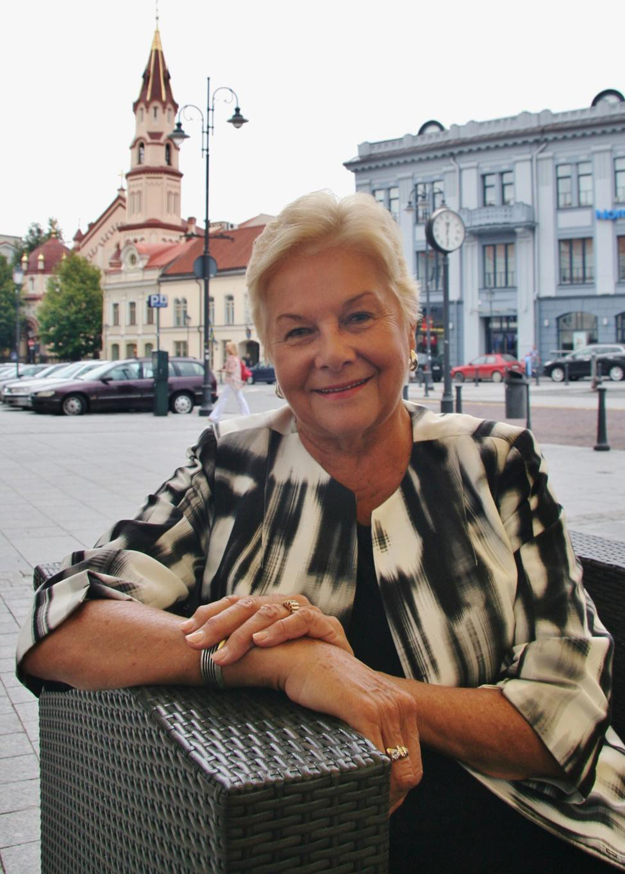
Marija Danguolė Navickienė is the new President of
Lithuanian World Community (LWC).
Photo: Aage Myhre
Marija Danguolė Navickienė, new President of the Lithuanian World Community (LWC)
interviewed by Aage Myhre, VilNews Editor-in-Chief
A new Board of Lithuanian World Community (LWC) was elected during the 14th World Lithuanian symposium held in August 2012 in Vilnius. Marija Danguolė Navickienė was elected new President for the organisation, replacing Regina Narušienė who chaired the LWC Board for six years. Here is our interview with the fresh LWC President.
Congratulations as newly elected President of the Lithuanian World Community (LWC)! For the next years you will lead the huge Lithuanian nation-outside-the-nation representing almost as many people as the country itself. What are your visions for this important job?
My vision is one of attaining mutual understanding, respect and cooperation between the people of Lithuania and its diaspora, as well as among the many different countries of the world where there are Lithuanian communities.
“We have to turn the idea of Global Lithuania into reality and take the relations between Lithuania and Lithuanian diasporas to a new quality level”, said the Vice-Minister of Foreign Affairs, Asta Skaisgirytė Liauškienė, in a recent meeting with you. What should, in your opinion, characterize such a new quality level? http://www.urm.lt/umr/m/m_images/wfiles/ioqw1o26229.jpg
I have had the pleasure of recently receiving a follow-up letter from Vice-Minister Asta Skaisgiryte Liauškienė detailing the many ways in which the Lithuanian World Community could work with the Lithuanian government as well as non-government institutions in Lithuania to fulfil the concept of a Global Lithuania. Among the suggestions were joint projects in academic, business, cultural and other fields. They are impressive and concrete in themselves, but the word which jumped out of the page at me was “partnership”. The LWC has long been on a quest for equal standing in conceiving and executing joint projects with Lithuania. This, above all, indicated that a new quality level has been reached. We look forward to working together with this newly redefined concept of partners united for a common cause.
It was in the meeting agreed to continue strengthening the cooperation between the Ministry of Foreign Affairs and LWC, cooperating for a common goal. Seen from outside there hasn’t seemed to be too close a cooperation between Lithuanian authorities and the global Lithuanians, are we now seeing an increased interest and understanding from the national leadership?
I sincerely believe that we have entered a new era of increased interest and understanding, not just judging by the contents of the letter from Vice-Minister Asta Skaisgirytė Liauškienė, but several other manifestations which I have experienced. The Lithuanian American Community Board of Directors meeting which occurred at the end of September in Atlanta was attended by so many members of the Ministry of Foreign Affairs, including the Minister of Foreign Affairs Audronius Ažubalis, that it almost looked like a Foreign Affairs Ministry convention. Besides the Foreign Minister, we had the Lithuanian Ambassador to the U.S. Žygimantas Pavilionis, Consul General to New York Valdemaras Sarapinas, the director of the Department of Lithuanians Living Abroad Arvydas Daunoravičius and several members of the Lithuanian Embassy staff present. Their attendance and expressions of mutual cooperation were very well received.
“No LT leaders called to tell they love me,” said Rimgaudas P. Vidziunas (65) from Arizona (see https://vilnews.com/?p=1363 ). He is one among thousands of Lithuanians born in German camps for displaced people after World War II. Why do you think nobody called him or sent him a note of recognition and appreciation?
It is difficult to answer this question not knowing if the quote is taken out of context, or is tongue-in-cheek, but if it is seriously expressed, then I would say that Rimgaudas’ expectations are somewhat unrealistic. Being born a Lithuanian is an accident of birth. It’s what you do with it later that really matters. If Rimgaudas and other Lithuanians living abroad participated in 50 years of efforts to liberate Lithuania through lobbying and dissemination of information about her plight to influential people of the world and anyone else who would listen, then they, as a group such as the Lithuanian World Community, Lithuanian American Community and all Lithuanian Communities of the world, are deserving of an expression of love and appreciation from Lithuanian leaders. There have, in fact, been many expressions of appreciation from Lithuanian leaders. They are expressed during cultural events, independence commemorations and throughout the media. Those who actively participate in such activities and read the Lithuanian press are well aware of it.
You are today working as an IT specialist in California, but have throughout your lifetime maintained interest and warm feelings for the homeland you had to fly from as a child at the end of WWII. You are also President of the "Lithuanian Children Hope" Los Angeles department, which over a 20 years period has donated more than 1.5 million US dollars to the Vilnius University Children's Hospital. Is there still today a need for charity and other forms of help efforts for Lithuania?
In reality, I have been retired from my profession for several years. It just doesn’t feel as if I’m retired because I’m working harder than ever. My current volunteer work, whether cultural or charitable or community projects, has given me more joy and fulfilment than any of the jobs for which I got paid. Lithuanian Children’s Hope, a subsidiary of the Lithuanian American Community Social Services Council, is the perfect example of how we can not only help heal Lithuania’s children, but also build bridges between our countries and Lithuania. Charity never goes out of style, be it in a prosperous country like the United States or one recovering from many years of Soviet occupation like Lithuania. It is the gift that keeps on giving – to donor and recipient alike.
There was a time when we used to bring children from Lithuania to Los Angeles for treatment before we had enough money to start rebuilding facilities and buying expensive equipment for the Vilnius University Children’s Hospital. During that time we had the opportunity to live closely with both children and parents while the children were being treated. Upon leaving for home, one of the mothers gave a beautiful speech to the volunteers who cared for her and her child in which she said: “You have done more than heal our children. You have taught us to love.” It is something I shall always carry in my heart. In short, the answer to your question is a resounding “YES!”.
If I’ve understood you correctly it was not California but New Jersey that became your first home in the U.S., and here you had a remarkable career working with secret test programmes for military airplanes?
My first home in the U.S. was New Jersey, but it was in California where I worked on my secret military plane programs.
“Ask not what your country can do for you—ask what you can do for your country.” This said U.S. President John F. Kennedy in his inaugural address in January 1961. What would YOU tell the many Lithuanians scattered around the world today?
I would tell them that it is not enough to eat kugelis and drink Lithuanian beer a few times a year. One would primarily need to be well-informed of events in Lithuania in order to understand her needs and to see where one can help. Some ways to help require years of commitment, while others may involve just writing a Letter to the Editor of newspapers which print libelous articles about Lithuania. The more letters they receive, the more likely they are to take notice and to print the rebuttals. Similarly, lobbying your governments to continue to support NATO involvement in the defense of Lithuania can have a positive effect. There are many such examples.
It is very important to foster Lithuanian culture and education in your communities in order to keep close ties with Lithuania and feel a commitment to be useful to her in the future. You can be a good Lithuanian without jeopardizing your ties or loyalty to your adopted country.
For you be a good leader for international Lithuania, the 'troops' of global Lithuanians must rally behind you. How can that best be done and what would be your invitation to groups and individuals who wish to contribute to your important work that is now in its very beginning?
Even though we are all of Lithuanian ancestry and share the same history and cultural heritage, we are in many ways quite different. This is true not only between the diaspora and the country of Lithuania, but also among the many communities of Lithuanians living abroad. I believe that finding that which unites us is very obvious and merely scratches the surface. I feel a need to explore that which divides us and work to overcome our differences in order to be effective. For example, we could institute some people-to-people programs or cultural exchanges between the different countries of the diaspora to promote understanding and unity.
"Workers of the world, unite!" said Karl Marx and Friedrich Engels in their Communist Manifesto (1848). What about “Lithuanians of the world, unite!” as motto for you and LWC for the years to come?
This motto expresses well what the LWC needs to do in order to achieve its goals. We are all of Lithuanian ancestry, we speak Lithuanian and promote Lithuanian culture and education in the many different countries in which we live. If we would be concerned only with our corner of the world, our successes would be small. If we unite and work together to achieve common goals, we shall become a force – one to be respected and desired as an ally on behalf of Lithuania.
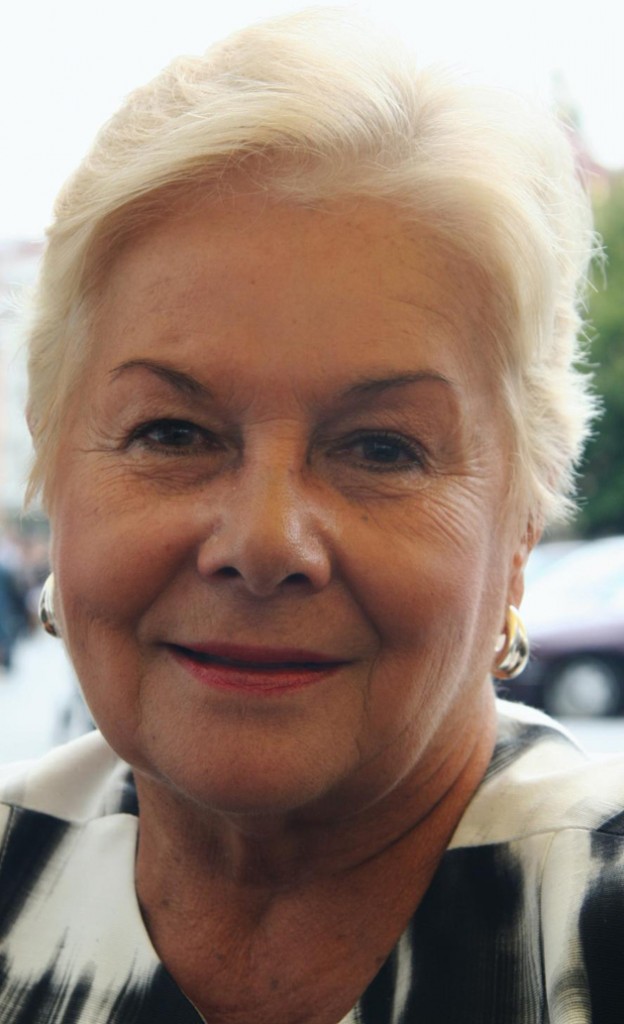
3020 Marija D. Navickas
Adirondack Court
Westlake Village, CA 91362
805-497-0105
navickiene@verizon.net
CURRENT EXPERIENCE – Volunteer Work
Lithuanian World Community – 08/2012 – present
President of the Lithuanian World Community – 08/2012 – present
· Conduct all Public Affairs for the LWC
· Represent LWC interests to Lithuanian government and non-government institutions
· Assist multi-country constituencies in maintaining solidarity and functionality in their regional concerns as well as productive connections to their own governments
Lithuanian American Community – 09/2006 – present
Executive Vice President of the Lithuanian American Community National Executive Committee - 09/2010 - present
· Organize meetings and seminars with Lithuanian government and cultural dignitaries
· Organize major cultural events for thousands of participants
· Provide mentoring for LAC chapters throughout the country
· Give bilingual interviews to Lithuanian media when visiting Lithuania
Western Region Chair – 10/2011 - present
· Coordinate activities for LAC chapters west of the Mississippi
· Serve as a liaison between local chapters and the National Executive Committee
Chairman of the LAC National Board of Directors – 09/2006 – 09/2009
· Oversaw the execution of all the required activities of the Board of Directors and of the National Executive Committee
· Served as spokesperson for the Lithuanian American Community for all its causes and missions in both the Lithuanian and the American press
· Organized yearly board meetings and elections
Lithuanian children’s hope committee
Committee Founder and Chair – 08/1992 - present
· Have so far raised close to two million dollars for the improvement of children’s health in Lithuania in the post-Soviet era
· Conduct fundraising through public fundraisers and private solicitations
· Found pro bono specialized health services in the United States for 26 Lithuanian children
· Built the first pediatric burn center in Lithuania at the Vilnius University Children’s Hospital (VUCH)
· Provide modern equipment for the VUCH Trauma, Oncology and Premature Infant Departments
· Provide opportunities for VCUH medical staff to further their education by funding trips to seminars, professional meetings and work/study engagements abroad
Professional EXPERIENCE
zenith insurance, Los Angeles – 1991 - 2001
Knowledge Engineer/Software Engineer
· Developed risk analysis programs using artificial intelligence
· Provided technical support to the Underwriting and Accounts Receivable departments
Lockheed corporation, Burbank – 1986 - 1991
Software Engineer
· Project lead on a secret military aircraft project
· Military aircraft design using artificial intelligence
Grumman aerospace, Pt. Mugu Naval Base – 1974 - 1986
Software Engineer/Programmer
· Project lead on aircraft systems integration and test
· Test flight analysis
Education
Marymount Manhattan College, New York - B. A. in Mathematics
Continuous on-the-job education in Management and Software skills
Skills
· Bilingual in English and Lithuanian
· Accomplished public speaker in both languages
· Computer expert
- Bookmark :
- Digg
- del.icio.us
- Stumbleupon
- Redit it
- Posted by - (1) Comment
Lithuania’s Foreign Ministry is committed to
its “Global Lithuania” Programme
When the Foreign Minister appointed Gintė Damušis to the new position of Ambassador at Large for relations with the Lithuanian World Community, he reiterated that State-diaspora relations are among the MFA’s policy priorities. Moreover, he expressed his appreciation for the work of Lithuanians abroad, who have actively contributed to the well-being, prosperity and viability of Lithuania. He also recognized the importance of past support and expressed the hope that efforts could be multiplied in the future through complementary and joint cooperation.
The “Global Lithuania” program is a vehicle for strengthening ties with the diaspora, including one of Lithuania’s oldest and most reliable partners – the Lithuanian World Community. What motivated the Government to come up with this idea? There is no denying that in today’s globalized world every country faces similar challenges. Migration is one such challenge. It is a reality for any democratic society, which guarantees the freedom of movement for its citizens. “Global Lithuania” seeks to address this challenge in a coherent fashion and to transform it into an opportunity. New technologies enable us to communicate faster and to cooperate more efficiently than ever before. The diaspora can successfully maintain transnational ties with their country of origin and actively participate in the state-building process much more readily.
The political, financial and logistical support provided under the auspices of “Global Lithuania” is more targeted and results-oriented. It aims to turn brain drain into brain power in support of Lithuanian strategic interests while at the same time increasing diaspora involvement in the life of Lithuania.
The Minister has stated that in order to realize the full potential of “Global Lithuania”, all government institutions involved in implementation of the program must demonstrate their commitment by allocating adequate funding, also administrative support and other necessary resources for making the “Global Lithuania” vision a reality.
Connecting Lithuania
and the diaspora
Gintė Damušis, newly appointed Ambassador at Large for relations with the Lithuanian World Community interviewed by Aage Myhre, VilNews Editor-in-Chief
After recently completing her posting in Ottawa as Ambassador of Lithuania to Canada, Gintė Damušis returned to the Ministry of Foreign Affairs as Ambassador at Large in the Department of Lithuanians Living Abroad in charge of relations with the Lithuanian World Community. Her duties include strengthening ties with Lithuanian organizations abroad, engaging Lithuanian communities through joint projects in the implementation of the “Global Lithuania” strategy, also rallying diaspora support for strategic Lithuanian interests. This is our interview with Ambassador Damušis.
Congratulations on your new position and duties. What is your vision for this important job?
I discussed the goals of this new assignment with the Minister. The vision is to actively engage the diaspora by promoting joint projects and activities for maintaining Lithuanian identity through educational, cultural, economic and other programs. We want to expand connections by encouraging communities to think locally, but act globally by sharing expertise and building business and other professional networks for promoting trade, investment, scientific and other cooperation. We are encouraging direct engagement with Lithuanian civil society so that the Lithuanian people can benefit practically from more active ties with the diaspora. More people-to-people contacts will open doors and expand horizons. Promoting volunteerism and the sustainability of diaspora activities abroad are issues that will continue to receive attention, also help raise public awareness about the diaspora. These may sound like ambitious tasks, but many fine initiatives in the diaspora and Lithuania alike are already underway, an entire Foreign Ministry department is dedicated to facilitating this work and 13 Government agencies are mandated to support these and other programs under a “Global Lithuania” action plan. We need to build upon these initiatives, strengthen and expand these efforts, multiply their scope and impact, so that the untapped potential of the diaspora is better utilized.
“We have to turn the idea of Global Lithuania into reality and take the relations between Lithuania and Lithuanian diasporas to a new quality level”, the Vice-Minister of Foreign Affairs, Asta Skaisgirytė Liauškienė, said in a recent meeting with Danguole Navickiene, the newly elected President of the Lithuanian World Community. What should, in your opinion, characterize such a new quality level?
A new quality level can be reached through more mutual respect, recognition and understanding of what each partner has to offer. This includes open dialogue about the added value of specific activities, also more broad-based recognition that the diaspora is Lithuania‘s natural ally and support system. Each partner needs to have realistic expectations about the other, also better awareness of mutual needs and requirements.
My own experience in Canada was very positive. The Embassy worked hand-in-hand with the Lithuanian Canadian community. We turned to the community for useful information and contacts, the community lobbied Lithuanian interests with local and federal representatives. Our main partner at Embassy business, cultural, press and other public events was the Lithuanian community.
We also need to recognize that the diaspora itself has changed over the past 20 years. It consists of people of different ages, life stories and experiences, with vastly varying needs. There are diverse interests, priorities and traditions between and within the different waves of emigration. The Government’s role is to shape a long-term strategy, which strengthens Lithuania’s connection to a multifaceted diaspora and interconnects the experience of old and new waves of emigration.
“Global Lithuania” is based on the approach that regardless of where we live, we can contribute to the progress of Lithuanian society and build a modern State by interconnecting knowledge, ideas and experience. Every motivated Lithuanian is important and can play a positive role both individually or within a broader framework like the Lithuanian World Community.
I personally believe that outstanding issues, such as dual citizenship, should not be a hindrance to pursuing practical cooperation and the strengthening of Lithuania-Diaspora ties. This would be counterproductive.
At this meeting between the Ministry of Foreign Affairs and LWC, both parties agreed to continue strengthening cooperation in pursuit of common goals. Seen from the outside, it seems as if there has been a lack of close cooperation between Lithuanian authorities and global Lithuanians. Are we now seeing an increased interest and understanding from the national leadership?
I dispute the perception that there is a lack of cooperation. Solid cooperation exists, as many Lithuanians abroad will attest, but communication could be better. Upon arrival at the MFA, I was surprised to see just how active interaction is with Lithuanian communities abroad. This cooperation is underpinned by a clear government commitment to maintain the program and strengthen relations despite the consequences of the global financial crisis. It is no secret that Lithuanian institutions are competing for limited resources. Also not all diaspora programs go through the MFA. As coordinator of „Global Lithuania“, the MFA plays a coordinating role, but it is by no means the only government agency implementing the program. For example, informal Lithuanian education – a leading LWC priority – is being transferred, as of 2013, from the MFA to the Ministry of Science and Education. Lithuanian embassies worldwide are actively supporting the establishment of Lithuanian schools abroad and will continue to do so.
Other initiatives that the MFA supports include the projects of Enterprise Lithuania and Global Lithuanian Leaders (GLL), which are building up networks of connected professionals around the world with the assistance of Lithuanians living abroad. GLL has also established a mentoring program for students and young professionals known as LT Big Brother. „Made in Vilnius“ is targetting social media and Lithuanians living abroad in an outreach campaign promoting tourism to Lithuania called „Invite a Friend to Lithuania“. Lithuanian International Student Services (LISS) has been organizing short-term internships in Lithuania for North American students and is looking to develop this popular program even further.
The World Lithuanian Economic Forum (WLEF) can serve as another good example of a successful Lithuania-diaspora partnership, which unites business professionals through a vibrant networking platform. It allows them to share experience and establish new business relationships, while contributing to the development of Lithuania. The WLEF network gives us access to the talent, expertise, contacts and other creative resources of highly qualified professionals, who have taken an active interest in our country. We are very grateful for their confidence in us and thankful to those, who have used their personal and professional connnections to draw major investments to Lithuania.
We are trying to interconnect all these fine initiatives with other interested partners such as the Lithuanian World Community, Lithuanian World Youth Association, Lithuanian communities in Europe, North and South America, and elsewhere, also individuals, who have an interest in Lithuania and want to get involved in one way or another. I should note that support is traditionally allocated not to the organization itself, but towards the implementation of good ideas and projects.
There is no scarcity of projects, initiatives or goodwill. We just need to do a better job at spreading information about the possibilities. The question of funding also needs to be addressed – and not just from the government side, but from the private and nongovernmental sectors as well. More innovative approaches are needed in funding arrangements to ensure the sustainability of diaspora institutions and activities, particularly among the younger generation of community leaders.
The World Lithuanian Youth Association has demonstrated savviness in this regard by approaching Lithuanian companies to fund the expenses of a recent youth conference in Lithuania, which was attended by 3000 participants from 30 countries, mostly Lithuanian students living or working abroad. The companies realized the added value of their involvement. No doubt they recognized the benefit of investing in an event, which attracted so many young people, many of whom may turn out to be potential job recruits in the future.
The Government is also interested in these young Lithuanians, is encouraging their return to Lithuania where they can apply their new experience and knowledge, or is motivating them to maintain the centrality of Lithuania in their roles as future community leaders.
“No LT leaders called to tell they love me,” said Rimgaudas P. Vidziunas (65) from Arizona (see https://vilnews.com/?p=13633). He is one among thousands of Lithuanians born in German camps for displaced people after World War II. Why do you think nobody called him or sent him a note of recognition and appreciation?
Mr. Vidziunas‘ life experience is one of so many thousands of interesting, unknown stories. It never fails to amaze me just how important and central Lithuania is to so many people like him. We need to build bridges to reach him and other motivated Lithuanians, to optimize those emotional, professional and other ties more effectively, because Lithuania and the diaspora are inextricably linked.
The Harvard Business Review Blog Network just carried an interesing article about the meaning of home in a globalized world (“Moving Around Without Losing Your Roots”, http://blogs.hbr.org/cs/2012/10/moving_around_without_losing_your_roots.html). In the article, blogger Gianpiero Petriglieri concludes that „without a local home we lose our roots, without a global home we lose our reach“. „Global Lithuania“ seeks to keep Lithuanians connected to their home country, or ancestral homeland. Hopefully, it will better position us to tap into those connections and to strengthen the Lithuania-Diaspora relationship.
What do you see as the main challenges ahead?
One of the biggest challenges is the perception that the Government is indifferent about the diaspora. Much is being done to address diaspora needs and concerns, and to include Lithuanians abroad in the life of Lithuania. The Government is approaching the diaspora in a more coherent way, thanks to “Global Lithuania”, and systematizing support and developing cooperation through many different programs, initiatives and networks.
Despite the enthusiasm from diaspora communities, strengthening Lithuania-Diaspora relations is admittedly a much more challenging task than it was 20 years ago. The main reason, as some community leaders allege, is the lack of a common denominator. Even so, the Government remains committed to identifying common goals and interests with the diaspora, also working in partnership to advance the interests and development of a modern Lithuania. The goal is to raise „Global Lithuania“ to a new level, so it becomes a living breathing plan and does not just turn into a paper tiger.
For generations there were certain code words that were part of the Lithuania-Diaspora relationship. These included freedom, human rights, Soviet occupation and the right to self-determination. Memories from the first years of Lithuanian independence kept the hope alive, and the euphoria of democratic change and reform, particularly during the days of Sajudis, was a major motivator for dramatic change.
A well-defined common issue at one point was EU and NATO membership for Lithuania, which rallied the diaspora around this important foreign policy goal.
Today Lithuania is so diverse across many lines – ideological, political, social, economic, etc. The benefit of such diversity is that every Lithuanian in the diaspora who is interested in Lithuania can find his or her counterpart. The disadvantage is that there is no single unifying cause as in the past for both Lithuania and the diaspora. Even so, opportunities to cooperate abound through specific areas of interest – along professional lines, in university student associations, through diaspora organizations, growing business and science networks, cultural, educational and charitable activities.
Lithuanian interests and democratic values can be advanced through a stronger Lithuania-Diaspora relationship, which works toward a more secure and prosperous Lithuania. As a global umbrella organization, the Lithuanian World Community can play an important and unique role in this regard, particularly by maintaining Lithuanian identity abroad and promoting the centrality of Lithuania in its global activities. Personal and emotional connections to Lithuania should not be underestimated and need to be nurtured.
We also have to recognize that the average Lithuanian knows very little about the realities of diaspora life. Many do not realize that community efforts are primarily based on volunteerism, or that Lithuanian families abroad actively maintain their identity through generations, that there are many charitable groups that support Lithuania-related causes, or that diaspora institutions promoting Lithuanian identity and culture abroad, such as community centers, youth camps, archives-museums, etc., are privately funded through individual donations and fundraising campaigns.
Hopefully, more Lithuanians will learn that life in the diaspora is not just about cepelinai dinners and other social events. It’s important to have some idea of what’s going on in diaspora life and Lithuania-Diaspora relations. The best way for people to feel that they are one united and undivided family is by doing things together and interconnecting interests. This is what we are aiming to facilitate.
- Bookmark :
- Digg
- del.icio.us
- Stumbleupon
- Redit it
- Posted by - (6) Comment
First time in the Lithuanian American Community:
3rd waver (trečia bangė)
becomes President

The new LAC President Sigita Šimkuvienė-Rosen addresses the LAC meeting in Atlanta, Georgia
In a meeting held in Atlanta Georgia on the 28 and 29th of September, the Lithuanian American Community made history by appointing its first ever 3rd Waver (Trečia Bangė) as President. The XX session of LAC elected Sigita Šimkuvienė-Rosen a recent immigrant to the highest office. Sigita came to the USA just eleven years ago and has been very active in LAC circles. The 3rd wave refers to the Lithuanian Émigrés who left Lithuania after independence - up to now most Lithuanian exile organizations have been run by the 2nd Wave which refers to those who left during WWII. Sigita broke the mold. Sigita lives in New Haven Connecticut. She takes charge of the largest Lithuanian diaspora organization in the world. The session was attended by Foreign Minister Audronis Ažubalis, Ambassador Žygimantas Pavilionis, Consul General Valdemaras Sarapinas, and other Government of Lithuania dignitaries. The Government of Lithuanian promised to work closer with LAC to address their concerns.

LAC Leadership Council
 Biru Bar from Indianapolis provided entertainment
Biru Bar from Indianapolis provided entertainment

Marija Danguolė Navickienė, new President of the Lithuanian World Community (LWC),
with Lithuania’s Ministor of Foreign Affairs, Audronius Ažubalis

Delegates at the Atlanta LAC Meeting

Lithuania’s Ambassador to USA, Žygimantas Pavilionis, reading Draugas*.
* Draugas is the oldest continuously published Lithuanian language newspaper anywhere in the world. Founded as a weekly Roman Catholic paper, Draugas published its first edition on July 25, 1909, in Wilkes-Barre, Pennsylvania. On March 31, 1916, it was relocated to Chicago, Illinois, and since then has been published daily, except Mondays and Sundays. During the Soviet occupation of Lithuania, the newspaper served as a voice of the Lithuanian independent media. Currently, Draugas is published by the Lithuanian Catholic Press Society in Chicago, Illinois. It contains twelve pages of political, religious, scientific, economic, sports, public interest articles, announcements, and paid advertising. The Saturday issue is twenty-four pages, including a weekly supplement Kultūra meaning Culture and subtitled Menas Literatūra Mokslas meaning Art Literature Science. See http://www.draugas.org/
- Bookmark :
- Digg
- del.icio.us
- Stumbleupon
- Redit it
- Posted by - (1) Comment
The Lithuanian American Community Board meets
The meeting woke me up to
how much good LAC does
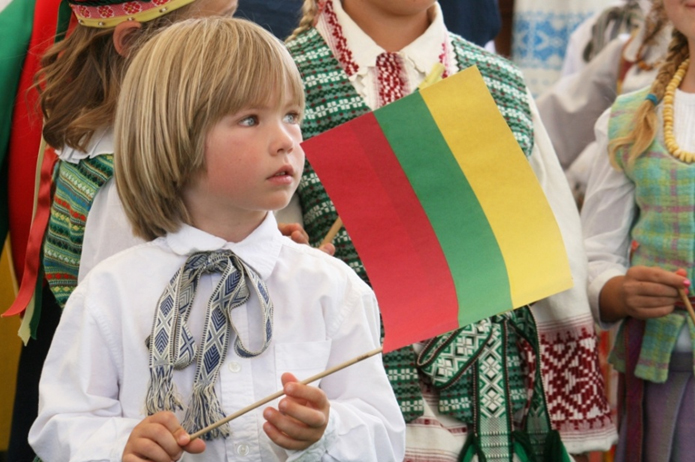
By Kestutis J. Eidukonis, VilNews CEO
kestutis.eidukonis@VilNews.com
Just prior to my joining VilNews, I was elected as a Board Member to the Lithuanian American Community (LAC) representing Arizona, Nevada, New Mexico and Utah in the Western District.
According to the LAC web page;
"Since its founding in 1951, LAC has sought to preserve the Lithuanian cultural identity for future generations. LAC is also in the forefront of fostering the growth of the democratic institutions of the country of our heritage and of assisting Lithuania in numerous other ways.
The Lithuanian American Community, Inc. has about 60 local chapters in 27 states and the District of Columbia. We encourage entrepreneurial individuals to form new LAC chapters where there presently are none.
Use the map to locate a LAC district. Then, click to learn more about
local chapters, events, parishes, schools, and more!
The Lithuanian American Community:
- organizes educational, cultural, religious, community, social, and sports activities,
- works in close cooperation with Lithuanian institutions, businesses and organizations,
- promotes Lithuanian culture in the U.S. and provides information to Americans about Lithuania,
- works to safeguard human and civic rights,
- actively supports strengthening democracy and economic reform in Lithuania,
- fosters interaction among Lithuanians within the United States and around the world.
The Lithuanian American Community (LAC) offers Americans of Lithuanian heritage (about 800,000) an organizational structure that enables them to:
- transmit their culture and language to their young,
- respond to the social, spiritual, educational, and other concerns of Lithuanian Americans of all persuasions,
- assist the country of their heritage with American civic experience, professional expertise, material support, and with other assistance for Lithuania’s efforts to fully rejoin the family of democratic nations after 50 years of foreign occupation (Soviet Union: 1940-1941, Nazi Germany: 1941-1944; Soviet Union: 1944-1990)."
I had been semi-active with the Arizona Lithuanian American Community of Arizona having once served as VP for NATO affairs and VP for Encouraging Investment in Lithuania. But the LAC to me was a big impersonal organization that our local community sent part of our dues to and did nothing more. I agreed to run because my good friends Dr. Rimantas Vaitkus -- Former Board Member and one time Head of the Arizona Lithuanian American Community and Dr. Stacys Vanagunas previous Board Member -- managed to convince me that I would be the right person for the job and thought that I could do some good by being on the board. With a little skepticism, I agreed. The elections took place and I got elected; I ran unopposed but could have lost the seat for our region if I did not get enough votes.
This last weekend, September 28-30th, I and the other 60 members of the Board gathered together for our annual Board Meeting. I expected a lot of talk, arguments and fights and wasn't quite sure what would be accomplished.
I was very pleasantly surprised. The meetings were very professionally run by Juozas Polikaitis, the President of the Presidium, Arvydas Barzdukas, and Secretary, Loretta Timukiene. For the most part, we stuck to the points outlined in the proposed agenda.
The first day started out with registration, and a session for Newbies conducted by board member, Terese Genciene. After this session we got right down to business. During the opening session, US and Lithuanian Hymns were sung, and there was an invocation and prayers for departed members. This was followed by a whirlwind of past business, rule changes, reports, appointment of nominating committees, and vote counting committees, followed by reports from all the different officers.
For those who are wondering on how LAC functions, I will try to explain:
The Board consists of 60 elected members who are picked by their respective regions plus the ten heads of the regions who attend ex-officio. (See http://www.lithuanian-american.org/main/about-lac/overview for a breakdown on the regions and who the representatives are.) The members are elected for three year terms and are required to attend yearly meetings at their own expense. The meeting places vary; regions agree during the session to sponsor the meetings. This year it was the Atlanta Chapter, last year was Elizabeth, New Jersey, and next year's session will be in Detroit, Michigan.
During the meeting the members were broken down into committees with every member getting put on the committee of his choice. The different committees are:
1. Political and Public Affairs
2. Education
3. Culture
4. Youth
5. Organizational Affairs
6. Social Affairs
7. Sports
8. Religious Affairs
9. Finance
10. Rules and Regulations
The committees met and elected chairs and secretaries. The job of the committees is to provide guidelines and recommendations to the board and executive committees. All of the guidelines and recommendations are then voted on by the entire board.
The board also elected a President, Krasto Valdybos Pirmininke, who then picked her staff. The staff corresponds to the above mentioned committees with a few additions such as the Secretary, VP of Operations, Treasurer, VP of Archival Affairs, VP of Special Projects, VP of Information, etc. This year the board elected Sigita Simkuviene-Rosen as President. VilNews readers can expect a future article from Sigita outling her goals for LAC.
The board also held an election for the Court of Honor where all disputes and complaints are resolved.
This board will hopefully not be utilized. Last year three complaints were received and resolved by the board without any major problem.
The board also elected a committee which is required by its charter to meet with members of the Lithuanian Parliament (Seimas) to present them with suggestions and recommendations from the LAC board. Dr. John Prunskis, Regina Narusiene and I were elected to this committee. We are required to travel to Lithuania two times per year (at our own expense) and meet with our Seimas Counterpart Committee. I will write another article about what we plan to present to the Seimas in the very near future.
Needless to say the sessions were long, sometimes heated, but always very polite. A lot of ideas were presented, and I invite members of the board to submit their own articles and opinions to VilNews.
It was not all work and no play. We would adjourn for dinner around 7:00 PM where we even had Southern Fried Kugelis prepared by a Jamaican Chef!
We also had some entertainment in the form of wonderful Lithuanian Expat, Violeta Leskyte Cucchiara, an actress and an accomplished singer composer who entertained us with her songs.
On the final night we were very fortunate to have the cultural program done by BIRU BAR a capella from Indianapolis, Indiana. This fine group got everyone dancing and singing to traditional Lithuanian folk music.
The meeting was also attended by the Lithuanian Foreign Minister, Audronis Azubalis; the Lithuanian Ambassador to the United States, Zygimantas Pavilionis; the Council General to New York , Valdemaras Sarapinas; the Director of the Department for Overseas Lithuanians in the Foreign Ministry, Arvydas Daunoravicius; and the Cultural Attache, Evaldas Stankevicius. All of these honored guests were given an opportunity to put forth their vision for American Lithuanian relations.
Normally the President of Lithuania sends the Lithuanian Community a greeting letter, but due to the fact that she sent the Lithuanian Foreign Minister to the meeting, no greetings were received from Dalia Grybauskaite.
The meeting woke me up to how much good the Lithuanian American Community does. I was unaware of how much money and effort is spent on education and other activities by the LAC. I am very pleased and proud to be part of this wonderful organization. I invite others in LAC to send in their articles and impressions.
- Bookmark :
- Digg
- del.icio.us
- Stumbleupon
- Redit it
Join our “Historic Route 66 Photography Forum”
- Posted by - (5) Comment

By Rimgaudas P. Vidziunas aka "Rim", Mesa, Arizona, USA
At a book signing that I was photographing earlier this week, I was surprised to hear that so many Europeans come to America just to tour Historic Route 66 in tour buses, rented cars and even Harley Davidson Motorcycles. This inspired me to create "Historic Route 66 Photography Forum" for everyone to share their pictures and memories.
https://www.facebook.com/groups/HistoricRoute66PhotographyForum/
We share a passion for Historic Route 66, sharing our images, imagination, memories of the "Mother Road" for the world to enjoy.
U.S. Route 66 (US 66 or Route 66), also known as the Will Rogers Highway and colloquially known as the Main Street of America or the Mother Road, was a highway within the U.S. Highway System. One of the original U.S. Highways, Route 66 was established on November 11, 1926—with road signs erected the following year.[2] The highway, which became one of the most famous roads in America, originally ran from Chicago, Illinois, through Missouri, Kansas, Oklahoma, Texas, New Mexico, Arizona, and California, before ending at Los Angeles, covering a total of 2,448 miles (3,940 km).[3] It was recognized in popular culture by both a hit song and the Route 66 television show in the 1960s.
Route 66 served as a major path for those who migrated west, especially during the Dust Bowl of the 1930s, and it supported the economies of the communities through which the road passed. People doing business along the route became prosperous due to the growing popularity of the highway, and those same people later fought to keep the highway alive in the face of the growing threat of being bypassed by the new Interstate Highway System.
Route 66 underwent many improvements and realignments over its lifetime, and it was officially removed from the United States Highway System on June 27, 1985[4] after it had been replaced in its entirety by the Interstate Highway System. Portions of the road that passed through Illinois, Missouri, New Mexico, and Arizona have been designated a National Scenic Byway of the name "Historic Route 66", which is returning to some maps.[5][6] Several states have adopted significant bypassed sections of the former US 66 into the state road network as State Route 66.
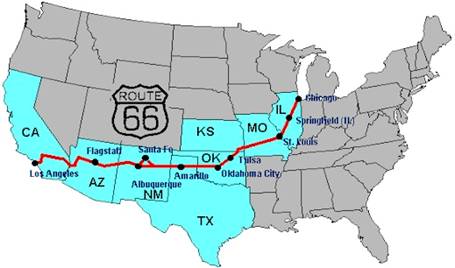
- Bookmark :
- Digg
- del.icio.us
- Stumbleupon
- Redit it
- Posted by - (0) Comment
Follow VilNews
around the World!
 Lithuania has put more footprints in the world sands than you might think. We've therefore followed some of them (see below articles) in order to let you know and to spread the word… We have met India's leading Sanskrit experts, telling us about the many similarities to Lithuanian language... We have travelled through 26 European countries and found lots of Lithuanian footsteps... We have been to South Africa to speak to the enormous population of Lithuanian Jews there… And we have, last but not least, discovered a huge range of Lithuanian tracks in the USA!
Lithuania has put more footprints in the world sands than you might think. We've therefore followed some of them (see below articles) in order to let you know and to spread the word… We have met India's leading Sanskrit experts, telling us about the many similarities to Lithuanian language... We have travelled through 26 European countries and found lots of Lithuanian footsteps... We have been to South Africa to speak to the enormous population of Lithuanian Jews there… And we have, last but not least, discovered a huge range of Lithuanian tracks in the USA!
- Bookmark :
- Digg
- del.icio.us
- Stumbleupon
- Redit it
VilNews e-magazine is published in Vilnius, Lithuania. Editor-in-Chief: Mr. Aage Myhre. Inquires to the editors: editor@VilNews.com.
Code of Ethics: See Section 2 – about VilNews. VilNews is not responsible for content on external links/web pages.
HOW TO ADVERTISE IN VILNEWS.
All content is copyrighted © 2011. UAB ‘VilNews’.

 Click on the buttons to open and read each of VilNews' 18 sub-sections
Click on the buttons to open and read each of VilNews' 18 sub-sections 




















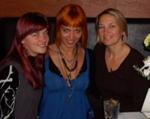
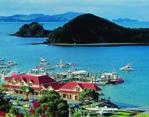

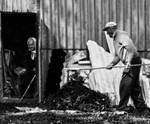



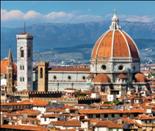






















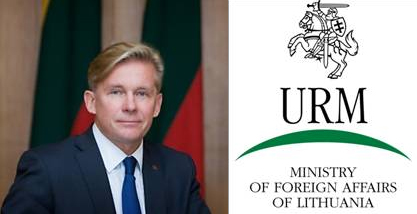
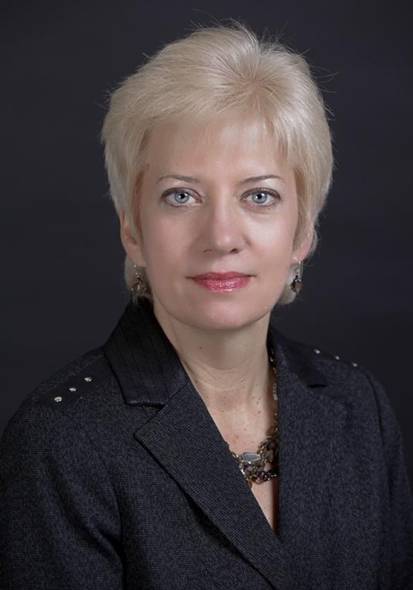










.jpg)



